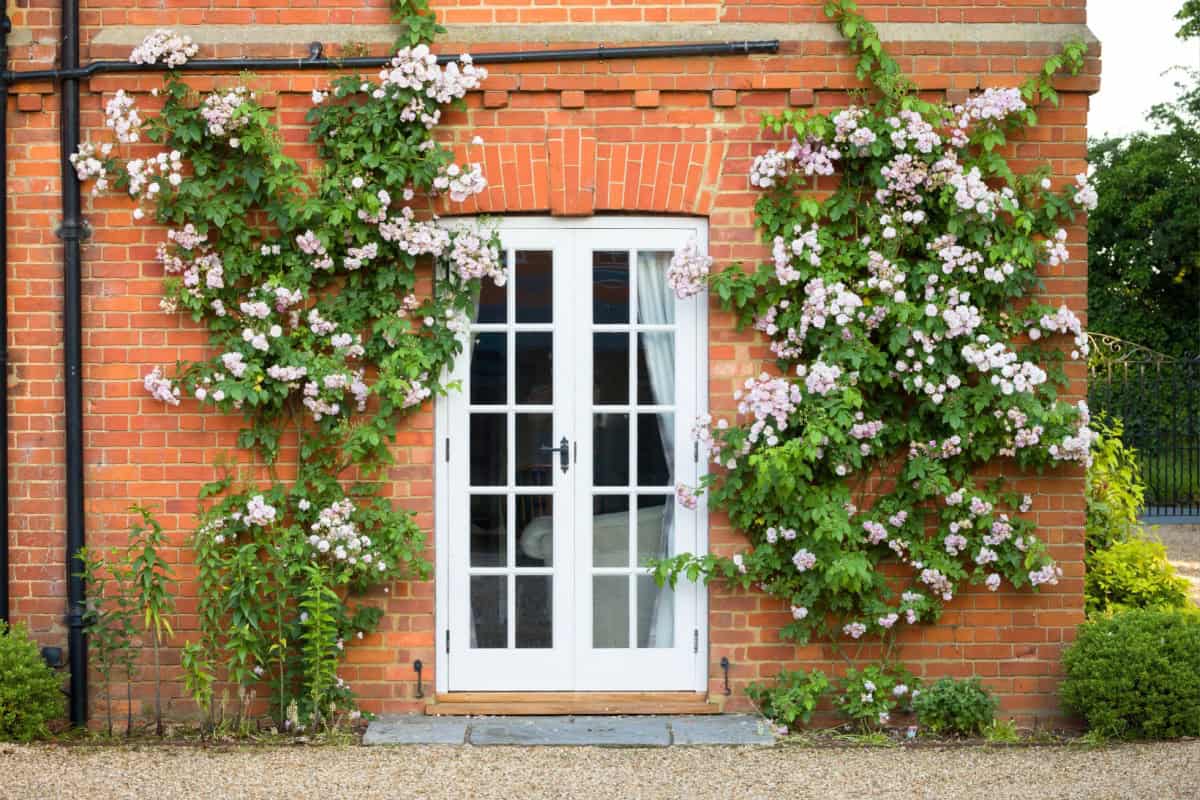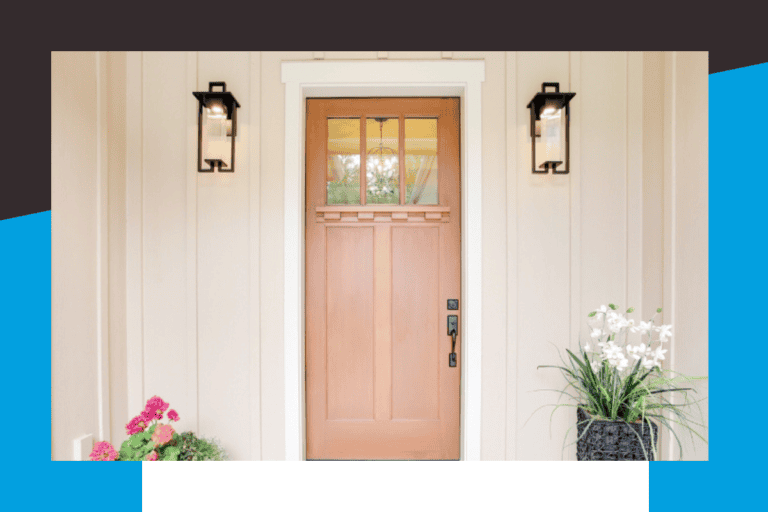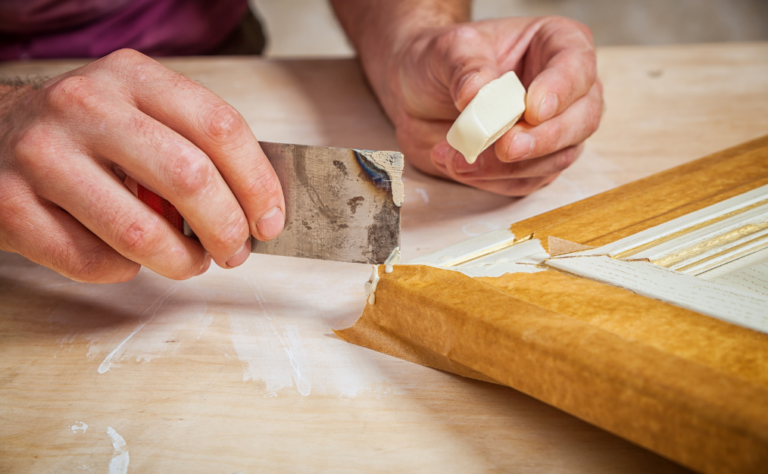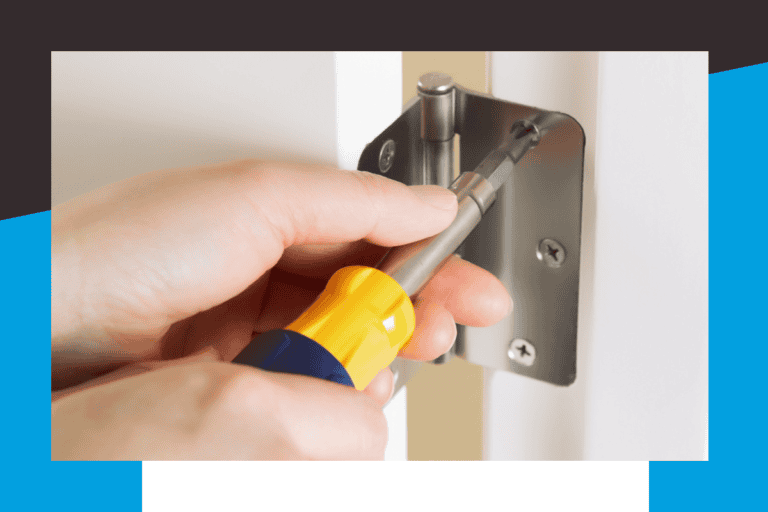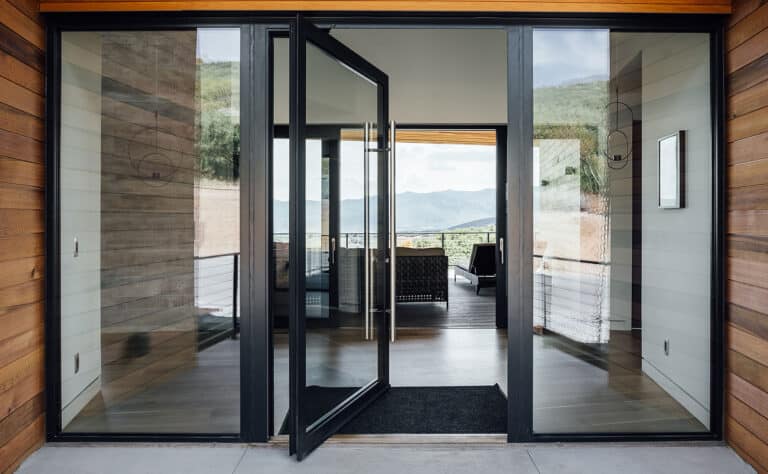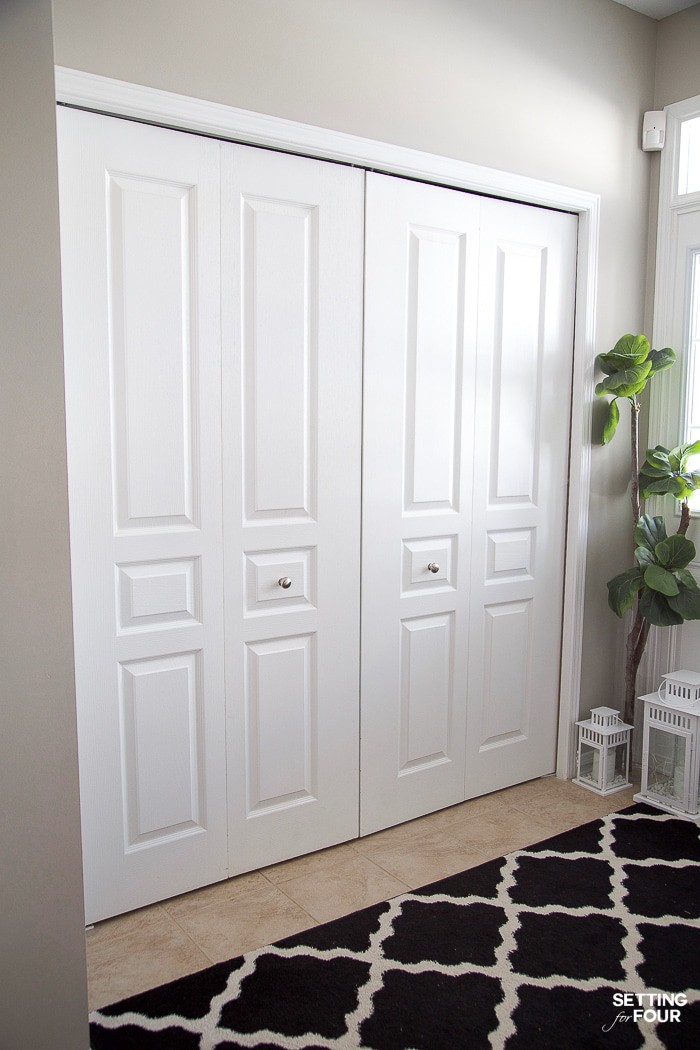Of the many different door styles available, French doors are one of the options growing in popularity for their lavish appearance and various functional benefits, but that doesn’t mean you should automatically jump on the trend and get them for your own home.
Instead of just telling you to do that, the team at Door Digest is going to go over what French doors are, some of the unique benefits and drawbacks of using them, and some tips to help you determine if French doors are best for you.
Let’s get started.
What are French Doors?
French doors are available in many different design schemes, but they all share a few characteristics. They’re a form of double doors with expansive glass panels, and they’re typically meant to be used in primary entryways.
Beyond that, they can have their panels split up with unique frame designs, full uninterrupted glass panels, ornate glass panel designs across the top, and subtle differences in overall frame design.
Benefits of French Doors
French doors do have a number of benefits that make them stand out against your standard exterior doors.
Here are the key benefits we think make the biggest difference.
1. Natural Lighting
The large glass panels paired with the double-wide door design ensures that you get plenty of natural light through French doors. This minimizes your need for artificial lighting during the day, and it’s proven to be better for your health mentally and physically. After all, sunlight is tied to various things such as melatonin and serotonin production, forms of depression, etc.
Buying French doors doesn’t automatically prevent these issues, but it does maximize the natural lighting in your home and help you out a bit if you’re not the type to go outside much.
2. Energy Efficient
With modern glass advancements, the large glass panels in French doors can actually help insulate your home. Of course, this does depend on the glass used, but doors that are energy efficient are typically labeled as such since it’s a major selling point.
3. A Grand First Impression
The first thing people interact with when they come to your house is your front door. A nice standard door can make an impression, but imagine your guests walking up to your home for the first time, and they’re met with an elegant, beautiful, double doorway. It’s a grand experience that insinuates a luxurious interior and homeowners who really care for their property.
4. Increased Property Value
Adding new doors can easily add value to your home if they match the existing aesthetic of the home, but French doors can add a bit more. They’re bigger, more luxurious, and since they’re trending, they also appeal to new homebuyers more.
Now, you might not want to sell your home, and it might not even be a thought for the future. However, getting this boost to its value is still worthwhile. If something pops up and you do want to sell later, you already put in work to maximize the profit. That, or if you have heirs that you’d like to pass the home on to, they’ll benefit from the boost.
5. More Entryway Space
Finally, we’ve all had one of those experiences where we’ve purchased a new couch or appliance, got it back to the house, and the entryway itself turns into the biggest obstacle. The doorway is just too small.
That is a problem of the past with French doors. Their entryway is twice the size, and there are very few things you’ll want to bring into your home that won’t fit through it. This makes moving, upgrading furniture, and other tasks a lot easier.
Those aren’t frequent issues, but when they happen, they’re extremely annoying.
Drawbacks of French Doors
While French doors have a lot of major advantages, there are some drawbacks that you want to consider before committing to them.
1. You Have to Rework the Frame
First and foremost, most homeowners will have to extensively change the entryway frame to accommodate French doors. After all, they’re twice as wide. This dramatically increases costs beyond the door cost we’ll talk about shortly, and it’s quite a bit of work.
This is also a somewhat permanent change to the house. Once you open up that entryway space, it’s a whole project to get it back to being a standard frame. So, you have to commit to French doors.
2. Price
It’s expensive to widen the doorframe, but that’s not the only cost. Because French doors are actually two doors for one entryway, they do cost more. There are options that fit different budgets, but you’ll be hard pressed to get a French door that is equal quality to a single door without paying a premium.
3. Different Lock Requirements
Finally, French doors don’t lock the same way as standard doors. With a standard door, the lock’s bolt protrudes into the stud of the frame, and it is nearly impossible to force it through without considerable effort. Standard locks also all align the same way.
French doors lock into each other. At least, when you use a proper French door double lock, they do. This is a lock on each door that ensures both doors have their own bolts going into the other one. This creates an exceptional lock that is hard to bypass. If you use a standard lock on these doors, it’s a prime target for burglars.
Are French Doors Right for Your Home?
So, are French doors right for you? Well, there are two primary things to ask yourself. Are you willing to widen the frame? That is usually a requirement unless you already have French doors. Also, are you willing to accept the extra cost of both special locks and a generally more expensive door system?
If you haven’t decided yet and are simply trying to learn about your options, we offer a comprehensive and always growing list of resources to help you navigate the world of doors whether they’re exterior, interior, residential, or commercial. Read more from Door Digest to find the perfect door for you and more.
